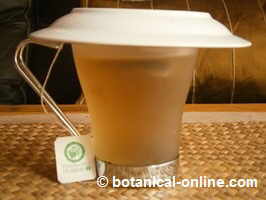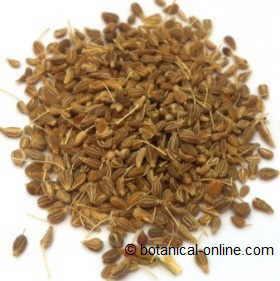Contents
- 1 Consequences of the usual use of laxatives
- 1.1 Is it good to use laxatives?
- 1.2 Can it be dangerous to use laxatives?
- 1.3 What are the dangerous laxatives to health?
- 1.4 Why laxative teas are dangerous?
- 1.5 Consequences of abuse of laxatives
- 1.6 What are the laxative teas?
- 1.7 Rules for use of stimulant laxatives
- 1.8 Toxicity of laxative teas
- 1.9 Contraindications of laxative teas
Consequences of the usual use of laxatives
Is it good to use laxatives?
Using laxatives can help solve specific situations of constipation, but it is best to normalize the intestines with proper diet against constipation.
Constipation must be resolved because the decreased depositional frequency causes putrefaction in the intestine that can be harmful to the intestinal and mucosal microbiota.
Laxatives can be remedies with plants, food or food supplements, which are used to facilitate bowel movements and solve constipation.
Avoiding constipation provides intestinal health benefits and prevents digestive diseases like diverticulitis or colon cancer.
Can it be dangerous to use laxatives?

Photo of senna. It is a very strong laxative to be used very occasionally. Sometimes it is found in preparations of laxative teas. Good to know that you can not take it frequently, as it may cause intestinal dependency and worsen chronic constipation.
It depends on the type of laxative used, some remedies for constipation can be harmful.
Foods rich in fiber are used to regulate the intestinal rhythm, they are the mildest and they virtually have no dangerous side effects (psyllium, flaxseed, chia, fucus, agar agar,…)
However, people who use laxative infusions regularly for chronic constipation should seek advice from their doctor because they should try to normalize the intestinal rhythm without the help of plants.
Laxative infusions, frequently used, can be dangerous to health, because many times, these teas contain purgative plants that cause intestinal dependency. Laxative teas are prescribed only in specific cases or against occasional constipation (produced by travel, vacation, diet change,…).
What are the dangerous laxatives to health?
There are some types of laxative called natural stimulant laxatives or purgatives, which have a very dramatic effect and contraindications. Also They are also called cathartic. The most common purgative plants are cascara, frangula, senna or cassia.
They all strongly stimulate bowel musculature causing its contraction, resulting in the evacuation of virtually all fecal colon contents. As a result, the stools are liquid and malodorous, with excretion of many nutrients, water and electrolytes (potassium,…).
Why laxative teas are dangerous?
The main danger that exists with the regular use of such infusions is that the bowel may lose tone, worsening chronic constipation, and causing intestinal dependency, that is to say, the intestine loses its natural rhythm and needs of these herbs to evacuate.
For this reason, laxative infusions should not be used by people with chronic constipation without the advice of a doctor.
Consequences of abuse of laxatives

Many infusions bags recommended “for the intestinal transit” contain laxatives plants with strong effects, which can solve a specific situation, but that aggravate chronic constipation.
In addition to the dangers discussed above, other effects can also be produced with the use of stimulant laxatives including:
Intestinal problems: They can be responsible for intestinal problems among which the most typical are the bellyache, nausea or vomiting, diarrhea, flatulence, etc.
- Intestinal malabsorption: They can cause mineral, protein or fat deficiencies in the body. Especially sodium or potassium imbalances, which may be responsible for other organic disorders such as hypotension or hypertension.
In regard to potassium, the difficulty of absorption of this mineral can lead to a state of hypokalemia (presence of low levels of potassium in the blood) with the consequent possibility of the occurrence of abnormalities such as muscle weakness, cramps, arrhythmias, constipation, intestinal obstruction, etc.
Preparations of this type of plant can cause malabsorption of fats, which is manifested in the form of greasy and smelly stools (steatorrhea).
In turn, the malbsorción of fats may lead to a lipid soluble vitamin deficiencies, That is to say, those that need fats. Similarly, a protein deficit by poor absorption (protein losing enteropathy) can take place.
Development of rectal cancer?: Although it has been theorized about the role that these plants have on the development of cancerous cells in the rectum, no study has tested this hypothesis.
Abortion: It has been estimated that these plants have abortifacient properties, so they are not suitable in pregnancy.
Intestinal dependency: In the worst cases, they can produce intestinal dependency, or loss of muscle tone of the colon.
Laxatives plants should not be consumed frequently
What are the laxative teas?
Among the main stimulant laxatives, we want to emphasize the following:
Cascara (Rhamnus purshiana)
Buckthorn (Rhamnus frangula)
Senna (Cassia angustifolia, Cassia senna)
Rhubarb (Rheum spp.)
Aloes (Aloe spp) including Aloe vera
Preparations with laxative herbs: Many laxative teas contain any of the above mentioned plants.
Rules for use of stimulant laxatives
It is especially important to consider the following rules of use before starting treatment with this type of laxatives:
Do not prolong use more than 7 or 10 days.
Do not use in case of chronic constipation, as still more accentuated. In case of chronic constipation, laxatives infusions should not be used frequently. See your doctor to properly address this health problem.
In case of adverse reactions, discontinue treatment and seek medical advice. For future decision, it is recommended to reduce the dose (Consult your doctor)
Do not take them in combination with licorice root.
They eliminate a lot of water from the body, so the person using them should drink plenty of fluids (water, isotonic drinks, wines) to avoid dehydration.
Toxicity of laxative teas
They should not be used during pregnancy or breast feeding or children.
They should not be used during menstruation.
- Should not be used in cases of intestinal diseases, such as inflammation, vomiting, acute intestinal pain undiagnosed, intestinal obstruction, inflammation of the urinary bladder, uterus inflammation, appendicitis, Crohn’s disease, ulcerative colitis.
Contraindications of laxative teas
Not to be used if you are taking medicines: In general, use favors the transit of drugs through the intestine reducing its effects, so this must be taken into account when the person making use of this plant is subject to some medication.
Not be used in cases of kidney failure, nephritis, liver failure or heart failure.
Not be used in combination with heart medications.
Its use can potentiate the effects of anticoagulants, by decreasing the absorption of vitamin K which aids blood clotting.
![]() More information on laxatives.
More information on laxatives.








